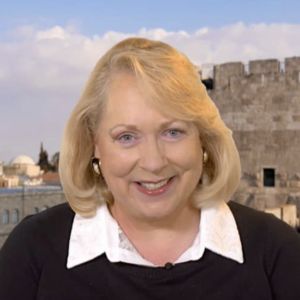Now that the Iranians have sole control over Lebanon, their eyes are set on the Gaza Strip.
Hamas, for its part, is thirsting for Iranian resources. Hamas knows that it will have to pay a price.
Iran and Hezbollah are working with Hamas to establish a “joint front” against Israel.
The Lebanese Prime Minister, Saad Hariri, has had enough. Last week, Iran finalized its takeover of Lebanon when Hariri resigned, and reportedly fled to Saudi Arabia.
Hariri, denouncing Hezbollah and its Iranian backers, said he feared for his life. Hariri has good reason to be afraid of Hezbollah, the powerful Shia terror group and Iranian proxy that effectively controls Lebanon.
Indications show that Iran and Hezbollah are also planning to extend their control to the Gaza Strip. Iran already provides Hamas with financial and military aid. It is precisely the support of Iran that has enabled Hamas to hold in power in the Gaza Strip for the past 10 years. It is also thanks to Iran that Hamas and Palestinian Islamic Jihad, another major terror group in the Gaza Strip, are in possession of thousands of missiles and rockets. It is Iranian money that allows Hamas and Palestinian Islamic Jihad to continue digging terror tunnels under the border with Israel.
Relations between Iran and Hamas have grown stronger in the past few weeks. Last month, a senior Hamas delegation visited Tehran to attend the funeral of the father of the senior Iranian security official, Qasem Soleimani. A few weeks earlier, another senior Hamas delegation visited Tehran to brief Iranian leaders on the latest developments surrounding the “reconciliation” agreement reached between Hamas and Mahmoud Abbas’s Palestinian Authority (PA).
It was the first time senior Hamas officials visited Iran since relations between the two sides became strained in 2011. That year, Iran suspended its ties with Hamas over the latter’s refusal to support Syria’s dictator, Bashar Assad, against his opponents in its civil war. The sudden rapprochement between Hamas and Iran has raised concerns among Abbas and his Palestinian Authority officials regarding Hamas’s sincerity in implementing the “reconciliation” agreement. President Abbas and his officials wonder why Hamas rushed into arms of Iran immediately after reaching the “reconciliation” accord under the auspices of the Egyptian authorities.
Iran and Hezbollah are no fans of Abbas and the Palestinian Authority. Abbas is terrified that Hamas is trying to bring Iran and its Hezbollah proxy into the Gaza Strip.
Abbas and his PA are eager to return to the Gaza Strip, but the presence of Iran there creates a serious problem. Like Hariri, Abbas would have good reason to fear for his life if Hamas brings the Iranians and Hezbollah into the Gaza Strip.
Abbas’s fear is also not unjustified. Earlier this week, a senior Hamas official, Musa Abu Marzouk, disclosed that his movement and Hezbollah were working towards strengthening their relations. “Relations between Hamas and Hezbollah were never cut off,” Abu Marzouk stated.
“We have ongoing contacts and understandings. But we preferred to keep them away from the spotlight. Hamas and Hezbollah are in one line in the fight against Israel, and we coordinate our positions regarding the Palestinian cause. Hamas will continue to cooperate with resistance groups that support the Palestinian resistance.”
The alliance between Hamas and Hezbollah is a direct result of the renewed relations between Iran and Hamas. With the help of Hezbollah, Iran has managed to take control of large parts of Syria. With the help of Hezbollah, Iran already controls Lebanon. Now that the Iranians have sole control over Lebanon, their eyes are set on the Gaza Strip. They know that the only way to access the Gaza Strip is through the Hamas door. Iran wants to see Hezbollah inside the Gaza Strip. Hamas, for its part, is thirsting for Iranian resources. Hamas knows that it will have to pay a price: allowing Iran and Hezbollah to set foot in the Gaza Strip. Judging from the remarks of Abu Marzouk, Hamas appears to be happy to pay the price.
Hariri, Abbas and many Sunni Arab countries, such as Saudi Arabia, felt betrayed by the Obama Administration’s policy of détente towards Iran — a policy that emboldened the Iranians and gave them a green light to meddle in the internal affairs of Arab countries to try to establish, as they seem to have done, a “Shiite Crescent” from Persia through Yemen and now Lebanon, clear to the Mediterranean Sea.
The Sunni Arabs are apparently particularly worried about the nuclear deal signed between the Obama Administration and Iran. They feel that the Obama Administration’s attempt to appease the Iranians has emboldened the country that is the world’s leading sponsor of terrorism. Iran has since taken advantage of the nuclear deal to threaten and try to terrorize America, its friends, and its Arab allies.
Abbas has multiple reasons to be worried about the Hamas-Hezbollah alliance. Here is another one: a recent meeting in Beirut between Hamas leader Saleh Arouri and Hezbollah chief Hassan Nasrallah was yet another sign of Hamas’s effort to pave the way for Iran and Hezbollah to infiltrate the Gaza Strip and meddle in the internal affairs of the Palestinians.
|
|
Hamas has already stated repeatedly that it has absolutely no intention of laying down its weapons as promised for the “reconciliation” agreement with the Palestinian Authority. Hamas is prepared to cede to PA President Mahmoud Abbas limited civilian control of the Gaza Strip but has been clear that it will never dismantle its security apparatus or military wing. Hamas wants to bring the Iranians and Hezbollah into the Gaza Strip to counterbalance pressure from Abbas and Egypt and other countries to disarm and hand control over to Abbas. If Abbas ever returns to the Gaza Strip, he will find himself sitting not only with Hamas but also with Iran and Hezbollah, who consider him a traitor and puppet in the hands of Israel and the US.
Alarmed by the rapprochement between Hamas and Hezbollah and Iran, Saudi Arabia earlier this week summoned Abbas for urgent talks in Riyadh. The Saudis have been following with concern the visits by Hamas leaders to Iran and Hezbollah, and are worried that Abbas may face the same fate as Hariri.
Abbas may well wish to steer clear of the Gaza Strip: Iran and Hezbollah are working with Hamas to establish a “joint front” against Israel. Hamas’s decision to tilt towards Iran and Hezbollah discloses the truth: it is not headed towards moderation and pragmatism, but the very opposite. This does not bode well for the current Trump Administration’s efforts to achieve peace in the Middle East.
Without stopping Iran and Hezbollah from spreading their influence and control to the Gaza Strip and Arab countries, the prospects of peace seem rather dim. In fact, the prospects of war seem pretty close, as Iran, Hezbollah, Hamas and Palestinian Islamic Jihad meet in the middle to discuss their plans for war against Israel. Failing to stop Iran and Hezbollah would mean that Abbas may soon find themselves hiding with Hariri in Saudi Arabia.
Reprinted with author’s permission from Gatestone Institute






